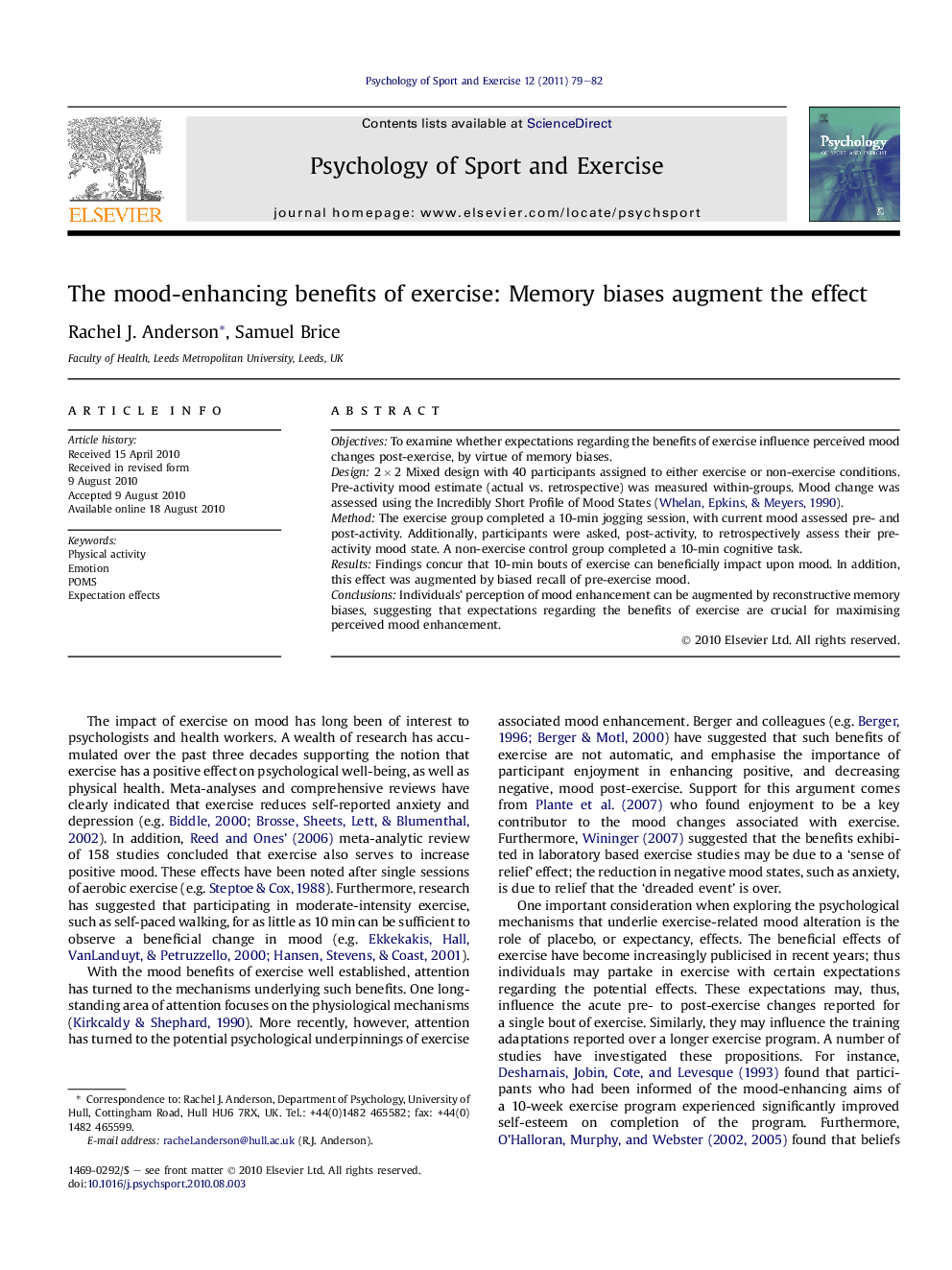| Article ID | Journal | Published Year | Pages | File Type |
|---|---|---|---|---|
| 894518 | Psychology of Sport and Exercise | 2011 | 4 Pages |
ObjectivesTo examine whether expectations regarding the benefits of exercise influence perceived mood changes post-exercise, by virtue of memory biases.Design2 × 2 Mixed design with 40 participants assigned to either exercise or non-exercise conditions. Pre-activity mood estimate (actual vs. retrospective) was measured within-groups. Mood change was assessed using the Incredibly Short Profile of Mood States (Whelan, Epkins, & Meyers, 1990).MethodThe exercise group completed a 10-min jogging session, with current mood assessed pre- and post-activity. Additionally, participants were asked, post-activity, to retrospectively assess their pre-activity mood state. A non-exercise control group completed a 10-min cognitive task.ResultsFindings concur that 10-min bouts of exercise can beneficially impact upon mood. In addition, this effect was augmented by biased recall of pre-exercise mood.ConclusionsIndividuals’ perception of mood enhancement can be augmented by reconstructive memory biases, suggesting that expectations regarding the benefits of exercise are crucial for maximising perceived mood enhancement.
